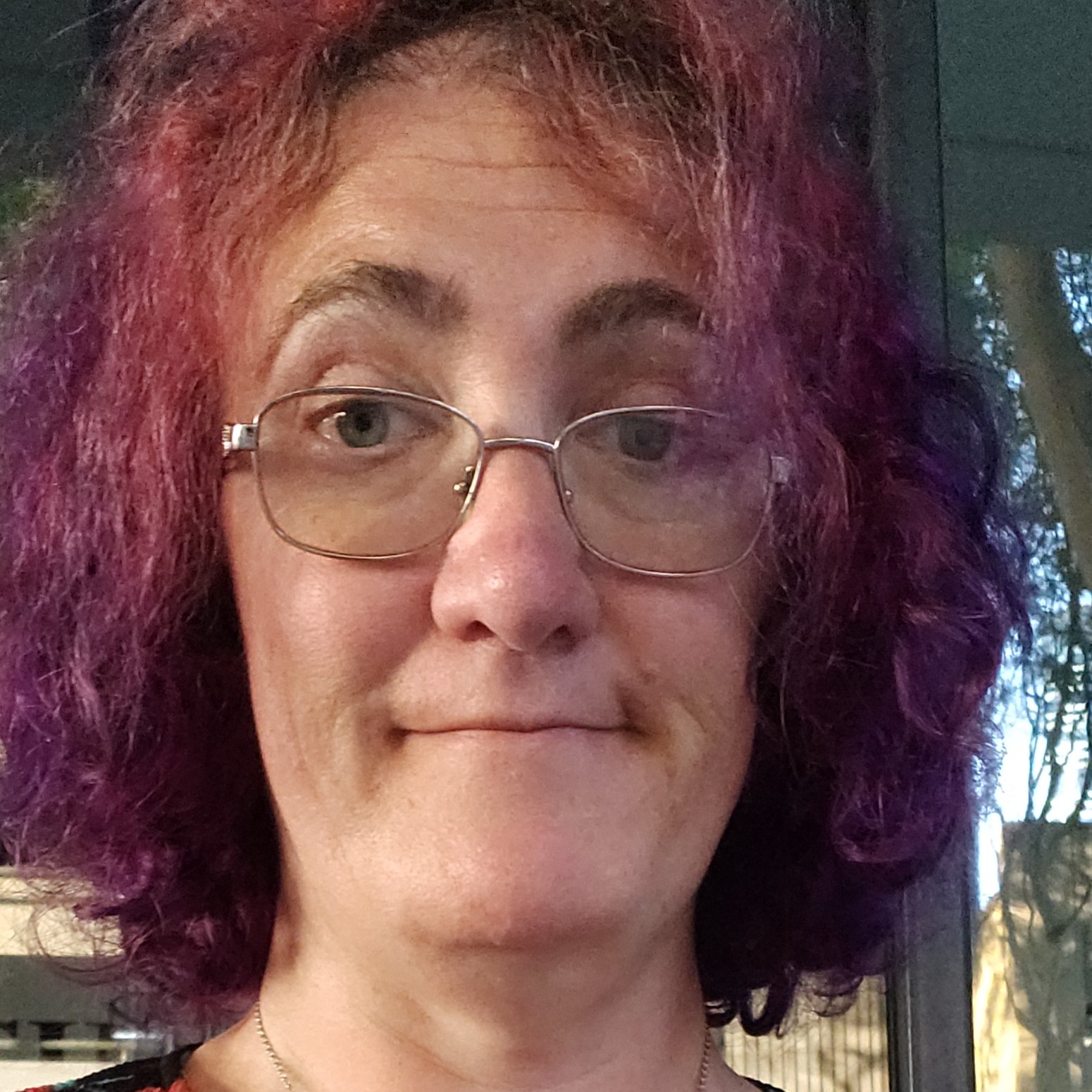Like a phone book?
I laughed out loud when I read the title of this post. When I’m helping my customers with their domain DNS records, I always analogise DNS to “a phone book for the internet”. I love that we’ve come full circle and phone books are “DNS for the phone system” 😂 (also goddamn does this make me feel old 😭)
Best furry explains DNS cat explains DNS
What did I just watch? Like… educational content, explained by… 🤷 not at all who you would have expected. What a unique mix.
This is awesome.
The multi xxxx registration is god damned mad lad max level.
To be fair, phone books are far from common in the USA anymore, and DNS is a far more interacted with technology than old school caller id.
Because the phone system is old
It’s also backwards compatible to an extreme:
I remember in the early nineties I found in my grandmother’s antique store one of those old black candlestick phones that you would jiggle to ring the operator. It didn’t have a rotary dial.
I plugged it in and got dial tone. I jiggled the hook and an operator answered the phone and asked me something. I don’t remember if I hung up or talked with them.
When mobile phones came out they improved the system significantly but it was still very much old tech.
Getting the entire world to switch to something better would be quite the undertaking.
Even just switching mobile voice standards is painful, as seen in Australia recently. In theory, you just need VoLTE support to use calling over 4G, but it turns out there is a bunch of other compatibility issues like emergency calling, device software and firmware settings, and carrier side problems that complicate matters.
It’s almost as if volte being a* proprietary technology hurts consumers and a lack of emergency test numbers (numbers that use the emergency system but are just for testing that it works) makes things harder.
*potentially multiple technologies
Getting the entire world to switch to something better would be quite the undertaking.
But that’s probably not necessary. You could install something on your phone that does phone number lookup and then just dials the number as normal. The service doesn’t need to be built into the old phone networks this way.
Related: this is why the audio quality of phone calls is so bad. It’s using what’s basically a predecessor of mp3 compression at a very low bitrate. Originally because that’s what the bandwidth limits were like, but now just for the sake of backwards compatibility. That’s why making a VOIP call sounds so much better: it’s using modern audio codecs and a higher bitrate.
researchers actually succeeded in creating that phone system upgrade. the resulting communication system is the internet and world wide web.
hooray! you got what you wished for!
Most people talked about how the system was designed, but I’m going to ask about what you mean from a different point of view. What use would that system be?
Everyone carries around their own personal DNS in the form of an address book. It used to be a physical book; now it is integrated to your phone. There used to be a physical book of most people’s phone numbers, but that practice went away as spam calls became a larger problem and people stopped using the DNS book, the Yellow Pages, for looking up commercial numbers.
Second is phone numbers aren’t as valuable as IP address numbers.
The theoretical limit to phone numbers in the USA and Canada, which has a combined system, is 10 billion while not taking into account special numbers like 911 or that 555 numbers don’t work. That’s still enough for everyone within the USA and Canada to have a personal and work phone number with plenty to spare. If that becomes too much, the system can be changed to add more digita relatively easily.
In contrast, large parts of the Internet still works on IPv4. This is a problem as IPv4 only has about 4 billion IP address and every device has to have an IP address to work. I’ve got at least 5 devices that need an IP address to work while I only have one device that needs a phone number. So, the system of assigning IP addresses gets very complicated and DNS smooths that process to end users.
In practice the stagnation of IPv6 seems to be a recognition of the unintended security that NAT with IPv4 adds. From a security perspective, having every device use a public IP and trying to prevent malicious software from simply opening whatever ports it needs per device would be a headache.
How about security through obscurity, to some extent? An IPv6 address isn’t a needle in a haystack, it’s a needle floating somewhere in the solar system. I think I have a quadrillion addresses assigned to me?
340,282,366,920,938,463,463,374,607,431,768,211,456 unique IP addresses is a staggering amount to scan, no matter what horsepower you have to deploy.
It’s slow but stagnation is a disingenuous way of putting it. https://www.google.com/intl/en/ipv6/statistics.html
NAT brings no security, especially in this scenario. If you want to prevent malicious software from opening ports, you use a public facing firewall on your gateway. Which you should have for IPv4 as well.
that would be incredibly hard with a standard phone and whats the point. you can do that with any voice chat.
Lol I forgot landlines still exist 😅
Phone numbers are a “legacy system” if they were designed today they would be different.
Because phone numbers are more complicated than IP addresses.
A lot of these are true about IP addresses as well
About IPs or URLs?
IPv6 is quite complex, but not that complex
Because when the telephone system first was developed, all you had were dial phones, which could only send numbers 1 through 0 (10). So every call needed to be addressible using only numbers.
AT&T came up with the numbering system in the 40s…
https://en.m.wikipedia.org/wiki/North_American_Numbering_Plan
I mean it’s true, but the same general concept could be said about the internet. Everything runs on IPV4 or IPV6 so they can’t use names. OP’s concept is why isn’t there say, a universal phone book that say if I punched DHORK into my phone, it would go to a server where you are listed on, return your phone number, and then my phone automatically dials you.
To which I suppose the reality is… it wouldn’t really be much of a helper. everyone would have like 3-4 digits in their usernames anyway (because any combination of real first/last names, and english words would be gone in hours of the systems introduction). So your typical registered name would be JohnSmith3821 Which isn’t that much faster to learn, write or dial than a normal 9 digit number.
VoIP systems are getting us closer to your example. Properly provisioned VoIP (on-prem or cloud) can take a SIP user which looks exactly like an email address and direct digital calls to a physical phone. These days it’s likely going to be sent to an office desk phone or a Teams user, but many years from now it will likely be more common to dial out like that from/to any phone device.
I think your example is a bit more nuanced in that there’s some sort of regional database that I suppose one could register for when they change their address. But I don’t think we’re moving in that direction. Things are moving in a decentralized manner and folks hold onto their digital identities, regardless of their geographical location. So like others comments have said, the phone book system is not evolving any further, because modern communication systems are already the evolved version.
In short because numbers take less space. In long It would require changes in IMSI. It’s probably possible with esim, possibly you could add euicc eid application as [email protected] inside your esim profile but not sure if it would voilate some headers lenghts numbers so it won’t work everywhere except one operator and it’s relays.
“Because it would require changes” doesn’t answer OPs question. They want to know why wasn’t it done like this in the first place, and why aren’t we making the changes to make it happen now. Of course changing things would require changes.
It’s like answering a “why are stop lights red?” question with “It wouldn’t work because stop lights factories uses red bulbs and laws require them to be red”.
In the first place? We kinda did to begin with, you would phone the operator and say the name of who you wanted to phone.
Introducing phone numbers simplified this, given the operator would have to know or lookup their name, and allowed for the future introduction of automated systems. Such systems were analogue and DNS was far more advanced than them. I guess the telephone becomes so widely used and integrated under that system that it still uses a similar interface today, albeit with a cluster of different modernised interconnected backends
And that’s a much better answer!
Before widespread internet it made sense to give out numbers in the White Pages because physical mail forwarding was the other option to find people when their phone number changed. In the internet age where scammers across the globe can and will use personal information to target you for social engineering scams, it is better from a privacy perspective to have phone numbers be information you volunteer to people. There are sites which attempt to catalogue this information and ways to remove yourself from these as well. If a scammer can simply go down a list of most common names and a number string they can more easily make it appear they have a fake Amazon delivery, PayPal transaction, or other pressing issue customized with their name. Most people will not use their critical thinking, and these scams are a big enough problem already.
til there’s something related connecting the two: https://en.wikipedia.org/wiki/Telephone_number_mapping








